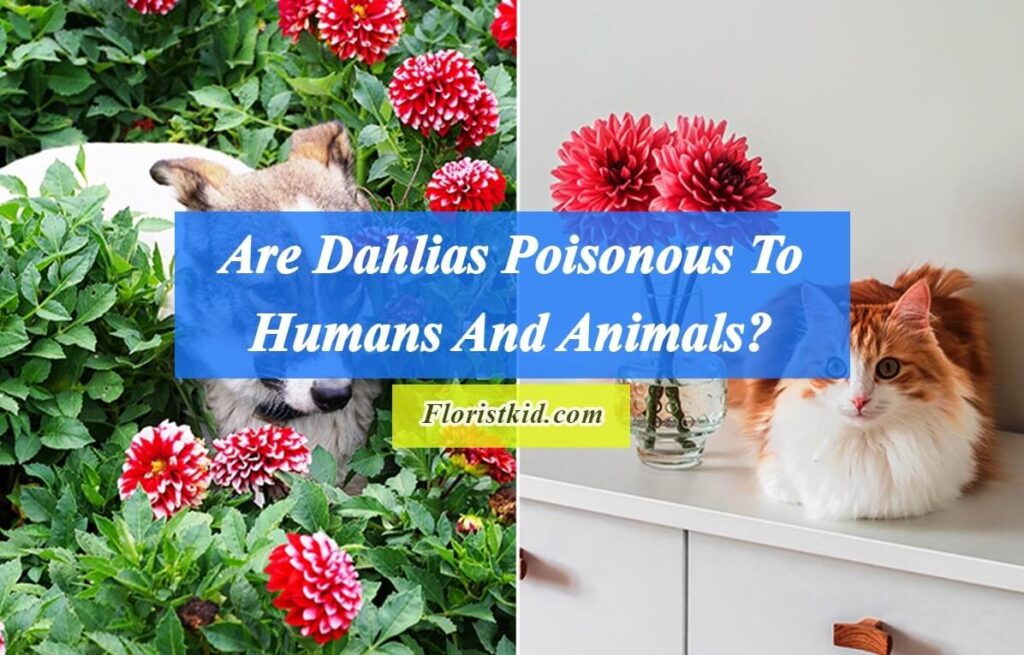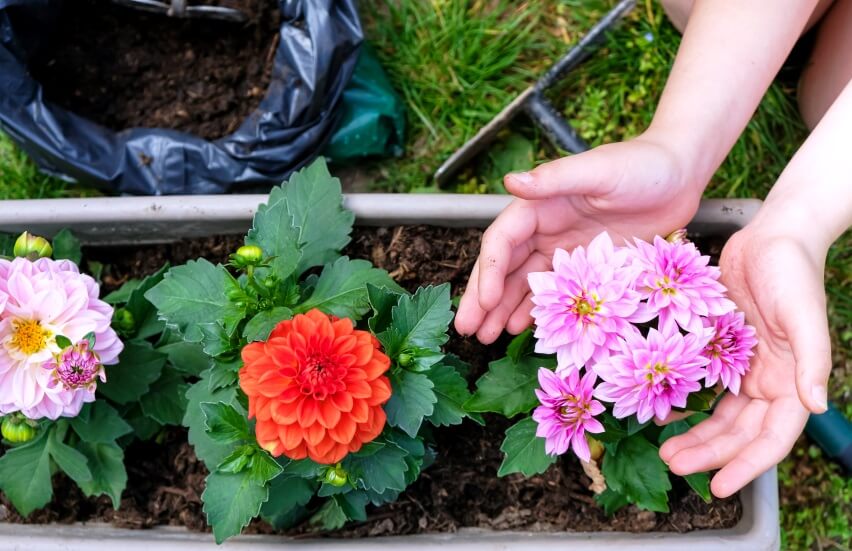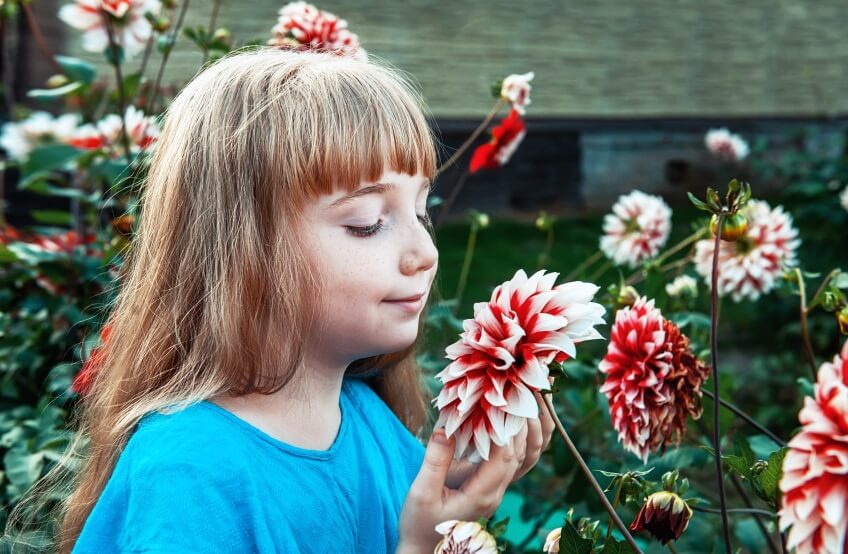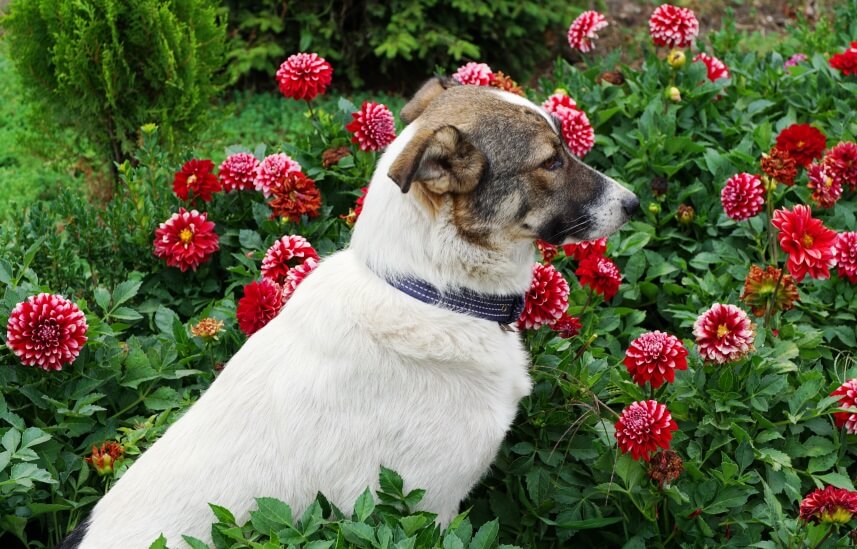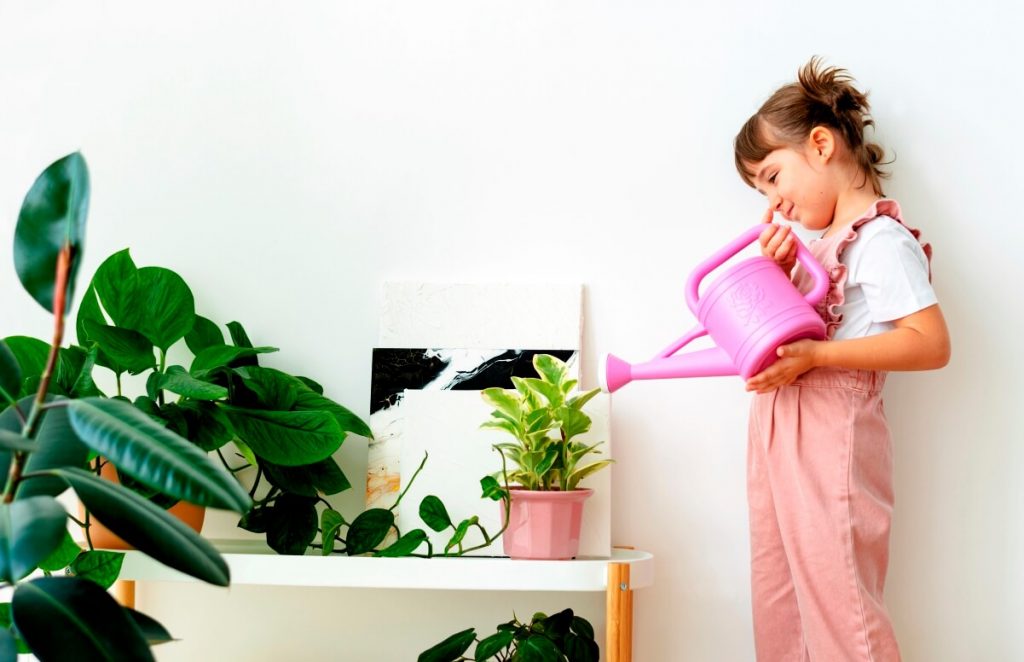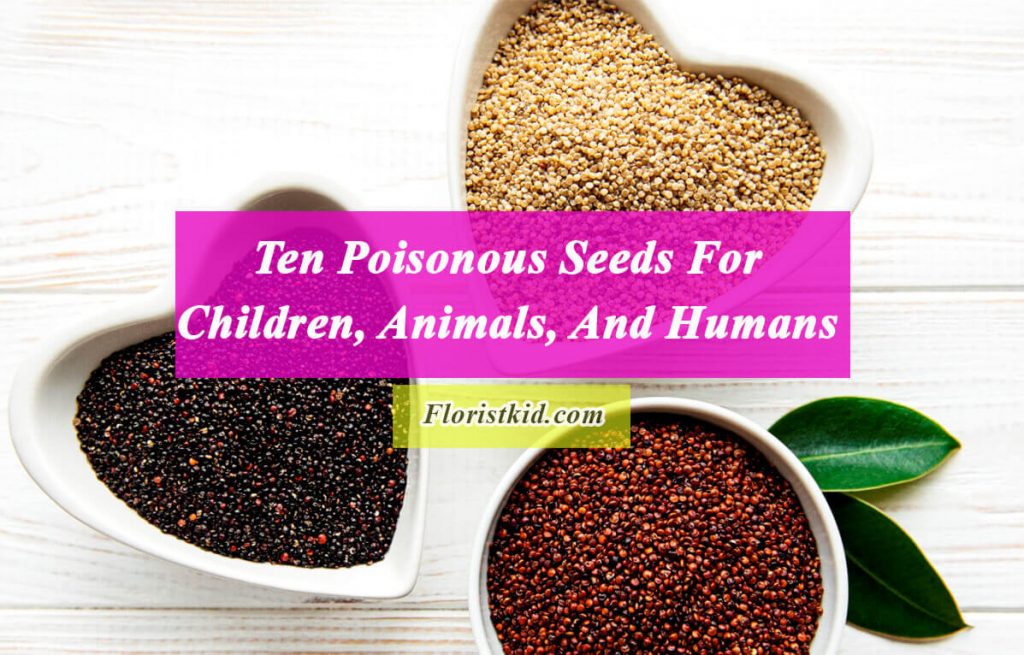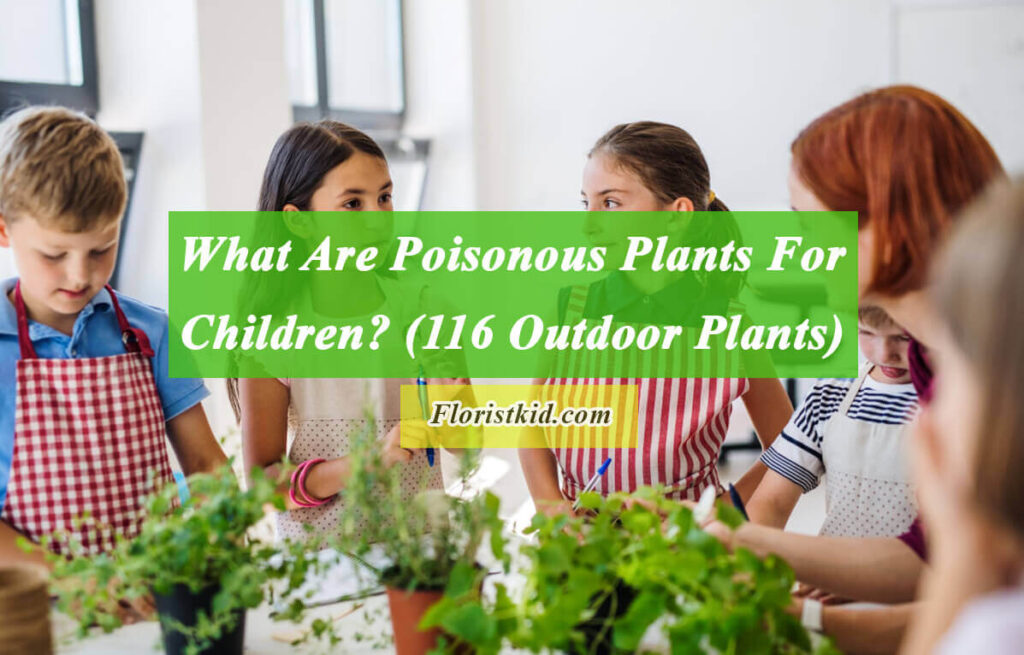Dahlia plants, scientifically known as Dahlia spp., are prized flowers known for their vibrant colors and intricate petal formations. As nature enthusiasts and gardeners alike appreciate their beauty, questions often arise regarding the safety of these blossoms. Let’s explore the facts surrounding these stunning flowers and uncover the truth behind any potential risks.
If you are interested in this topic, you can also read
<<Are Foxgloves Poisonous? >> and <<Are Geraniums Poisonous? >> articles.
Are Dahlias Poisonous To Humans?
No, dahlias are safe to humans. According to various reputable sources, such as the Royal Horticultural Society (RHS), there are no reported incidents of human toxicity caused by consuming or coming into contact with dahlias. It is crucial to differentiate between allergic responses and actual toxicity.
Toxic Effects
Although the flowers and tubers of dahlias are edible, consuming them may result in a laxative or toxic effect in humans when ingested in excessive amounts. These effects may vary from mild to severe, depending on the amount consumed, the individual’s sensitivity, and the duration of exposure. Symptoms may include nausea, vomiting, abdominal pain, dizziness, and respiratory distress.
Allergic Reactions
While allergies to dahlias are rare, some individuals may develop allergic reactions upon exposure. Skin irritation, redness, itching, and inflammation can occur upon contact with the plant’s sap, particularly in susceptible individuals. It is important to handle dahlias with caution, especially if you have a known sensitivity to plant allergens [1].
Toxic Components Of Dahlias
Beyond dahlias’ captivating beauty, it is important to be aware that certain parts of the dahlia plant contain toxic components. The toxicity of dahlias and the risks associated with their consumption or contact are as below:
Cyanogenic Glycosides
Dahlias contain cyanogenic glycosides, which are natural compounds found in various plant species. These compounds can release toxic hydrogen cyanide when metabolized. The highest concentrations of cyanogenic glycosides are typically found in the tuberous roots and stems [2].
Are Dahlias Poisonous To Animals?
Yes, dahlias are toxic to animals. The toxicity of dahlias arises from their natural composition, which includes certain compounds that can be harmful to animals if consumed. These compounds, such as sesquiterpene lactones, are present in the leaves, stems, and tubers of the dahlia plant. However, it is crucial to note that these toxic compounds are primarily a concern for animals, not humans. In this section, we will explore how dahlias are toxic to cats and dogs and what precautions should be taken to ensure the safety of our four-legged companions.
Are Dahlias Poisonous To Cats?
Yes, dahlias are toxic to cats. Dahlias are generally considered to have low toxicity levels in comparison to other common garden plants. The American Society for the Prevention of Cruelty to Animals (ASPCA) classifies dahlia plants as toxic to cats. Therefore, if a cat comes into contact with a dahlia, the risk of severe poisoning or fatal consequences is relatively low.
Potential Mild Effects
It is worth noting that certain cats may display mild gastrointestinal symptoms if they consume any part of the plant. These symptoms can include vomiting, diarrhea, or drooling. If you notice any of these conditions, you should contact your veterinarian for guidance [3].
Preventive Measures
While dahlias are mildly toxic to cats, it is always wise to exercise caution when introducing any new plant into the surrounding environment of your pets. Here are some precautionary measures to consider [4]:
Grown in controlled spaces: If you have indoor plants, consider placing dahlias in areas where your cat cannot reach them. If you have an outdoor garden, create a division between your outdoor garden and the spaces your cat usually visits.
Supervision is key: When allowing your cat access to outdoor spaces, keep an eye on their activities. Cats are naturally curious and may try to nibble on plants they encounter. Promptly redirect their attention if they show interest in the dahlias.
Seek veterinary advice: If you suspect that your cat has ingested dahlias or shows unusual symptoms, consult your veterinarian immediately. They can provide accurate advice based on your cat’s specific situation.
Are Dahlias Poisonous To Dogs?
Yes, dahlias are poisonous to dogs. It is crucial to have a clear understanding of which plants can pose a threat to our beloved dogs. Dahlias’ potential toxicity to dogs is discussed here to help you make informed decisions about your garden and home [5].
Toxicity Concerns
While dahlias are generally considered safe to humans, the same may not hold true for our canine companions. It is crucial to understand that dogs have different metabolic systems and sensitivities, making it important to exercise caution. While incomplete scientific studies specifically focus on dahlia toxicity in dogs, it is advisable to err on the side of caution.
Signs Of Ingestion
In case a dog ingests any part of a dahlia plant, it is essential to watch for any adverse reactions. The signs may vary depending on the dog’s size, the amount ingested, and their sensitivity. Some common symptoms of plant toxicity in dogs include:
- Gastrointestinal Issues: Dogs may experience symptoms such as vomiting, diarrhea, or stomach discomfort.
- Dermatological Irritation: Contact with certain plant parts may cause skin irritation or allergic reactions in dogs.
- Gastroenteritis: In severe cases, dogs may exhibit signs of gastroenteritis, such as dehydration, loss of appetite, and lethargy.
Prevention And Safety Measures
To maintain a safe environment for your dogs, it is recommended to:
Restrict Access: Keep your dogs away from areas where dahlias or other potentially toxic plants are blooming. Consider using physical barriers if necessary.
Garden Awareness: Be mindful when planting different flowers and plants in your garden. Research their toxicity levels beforehand to avoid any unwanted accidents.
Dog-friendly Alternatives: If you are concerned about potential plant toxicity, opt for dog-friendly plants such as petunias, marigolds, or snapdragons to enjoy a vibrant garden while ensuring your dog’s safety.
Consult A Vet : If you suspect or witness your dog consuming any part of a dahlia plant and notice any unusual symptoms, consult your veterinarian immediately.
Conclusion
In conclusion, dahlias are not toxic to humans, making them safe to handle and enjoy. However, individual sensitivities may vary, and allergic reactions can occur in rare cases. For pets, while not highly toxic, ingestion of dahlias can lead to gastrointestinal distress. By taking necessary precautions and being mindful of potential risks, both humans and animals can safely coexist with these beautiful flowering plants in their lives.

